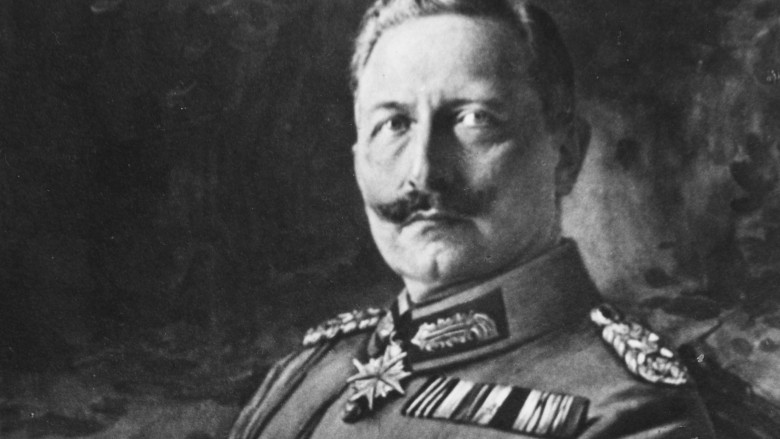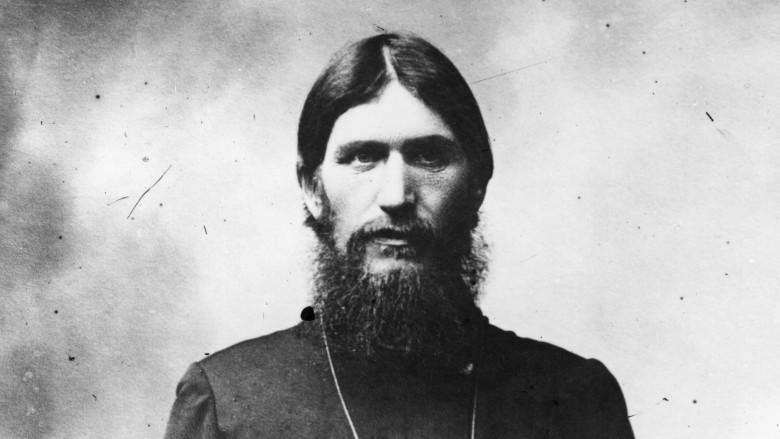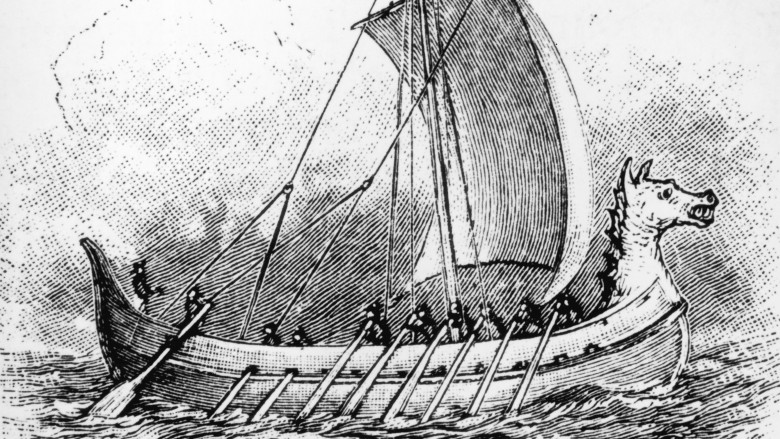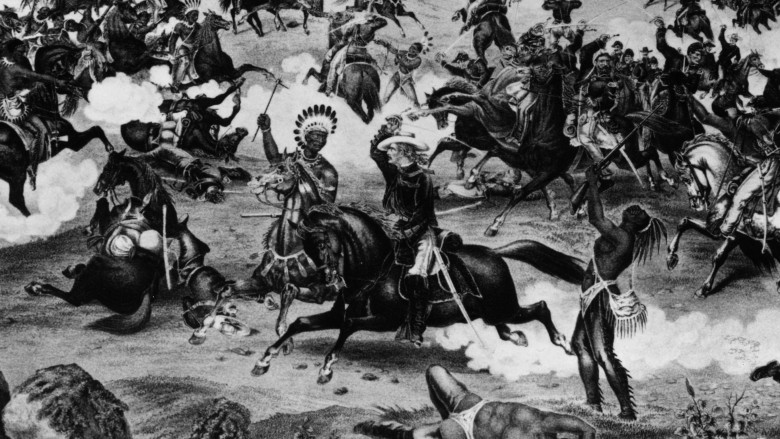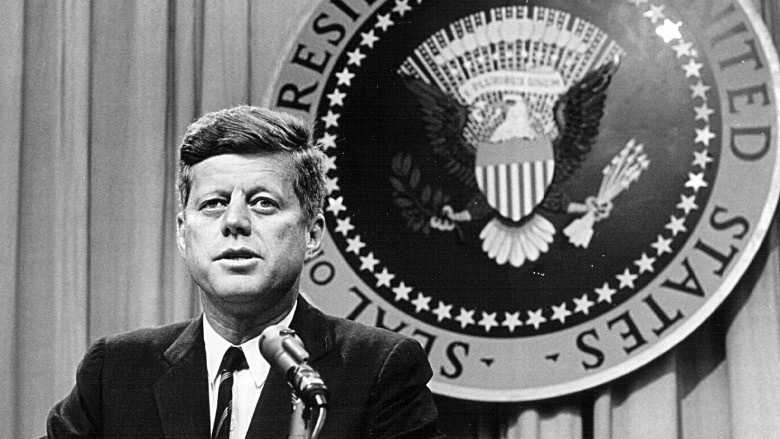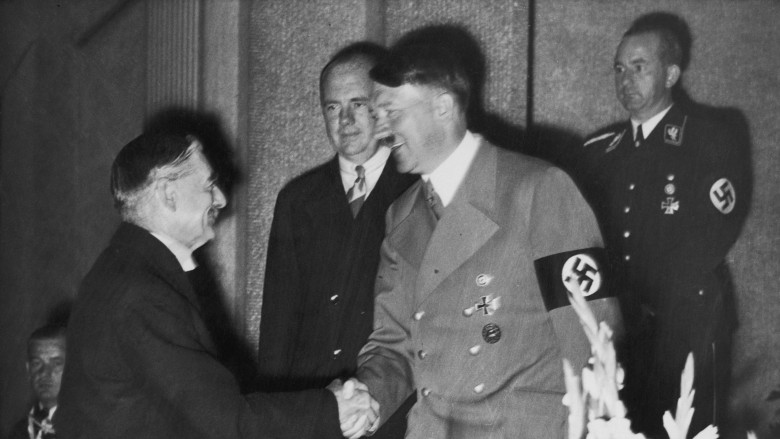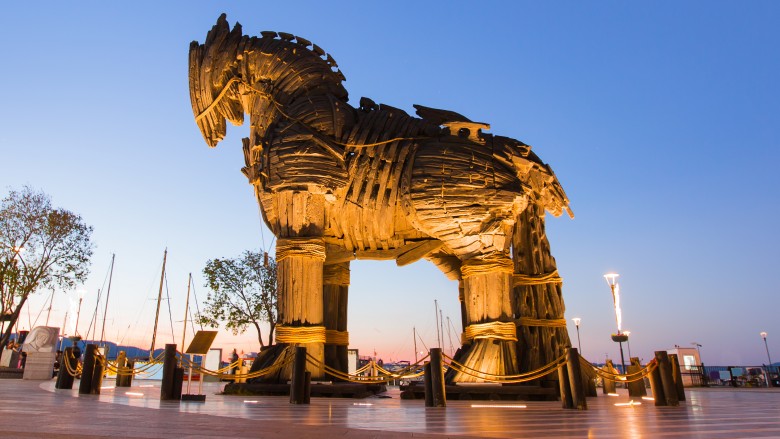The Most Confusing Historical Events Finally Get Explained
The past is murky, especially when textbooks leave most of us in the dark as to what really happened in key moments. Myths spread, making the situation even more unclear. Sometimes, pretty cool facts that are left out make history more interesting, so let's lay them out to clear up some of history's most fascinating moments.
World War I was a big family feud
World War I came thanks to several reasons, ranging from modernization to a rapidly changing political climate, but one of the biggest was petty family squabbling.
Europe's three most powerful monarchs — George V of England, Tsar Nicholas II of Russia, and Kaiser Wilhelm II of Germany — were all first cousins, being grandchildren of Queen Victoria. When Victoria died in 1901, relations quickly fell apart, with the three forming cliques like a bunch of high schoolers. While George V and Nicholas II managed to be friends and allies, Wilhelm II allied himself with Austria-Hungary and refused to have good relations with England for a pretty bizarre reason: his mom. Victoria of Germany, the eldest daughter of Queen Victoria, was an overbearing mother, and Wilhelm developed a creepy Oedipus complex that later morphed to outright hatred. When Wilhelm became emperor, his mommy issues led to frosty relations with her home country of England.
It would take just one event for everything to fall apart like a house of cards. In 1914, the Archduke Ferdinand, heir to the throne of Austria-Hungary, was shot by a Serbian national, leaving Austria-Hungary threatening war. Serbia, which was allied with Russia, drew Nicholas II into the conflict. Germany stood by Austria-Hungary, while Russia asked for assistance from Britain and France. Kaiser Wilhelm had communicated with his royal cousins via telegraph before the war, but he now finally found the opportunity to stick it to the rest of the family, particularly Britain. What started as a bunch of arguing cousins led to tens of millions of deaths.
Rasputin was a drunken, womanizing huckster
Before 1892, Rasputin was just a peasant living in Siberia, but after a month at a monastery, he claimed to be a divine holy man. Despite his nickname "the mad monk," Rasputin never took the Holy Orders and never quit his naughty ways. Rasputin was a sex machine. He slept with everyone from lowly prostitutes to high society ladies — all the while, incidentally, drinking like a fish.
Despite being a turn-of-the-century frat boy, Rasputin managed to get in good with the Tsar. Tsarina Alexandra took to him the most after he "cured" their son Alexei's hemophilia. There's a really easy way to explain Rasputin's "healing," though. Aspirin was used as a cure-all at the time and was the main treatment used for Alexei. But aspirin also works as a blood thinner, making Alexei even more sick. When Rasputin ordered the treatments stopped, Alexei seemed to recover.
While the Russian elite loved Rasputin, the public did not. When Nicholas II left to go fight Germany during World War I, Alexandra became the ruler of Russia. Soon came rumors that Rasputin was influencing her decisions. Felix Yussupov — a socialite who refused to go to war — decided he would kill Rasputin to make himself look like a hero.
Now comes the next big myth about Rasputin: he was impossible to kill. Yussupov claimed to have given him desserts and wine laced with poison, shot him several times, then threw him into a freezing river where he finally drowned. This entire story is false. Later, Rasputin's daughter Maria set the record straight: he died when he was shot in the head. Anticlimactic, right?
The Vikings just wanted to get laid
The Vikings have influenced our culture in many ways (for starters, those stupid horned helmets are iconic), but why did they become the scourge of Europe in the first place? One theory says warmer temperatures allowed for more farming, causing a burst in population and better sailing techniques. However, another theory simply states that there weren't enough women to go around.
At the time, it was not unusual for wealthy men to have multiple wives and concubines, leaving younger guys without women of their own. Just like teenagers who'd jump off a cliff if it meant they'd have a chance with a girl, the younger generations decided to go risk their lives and raid women from other countries.
In addition, the wealthy Vikings who were taking all of the women needed resources to support their own wives and concubines. They, too, found it more convenient to just go pillaging rather than do any work to support themselves. The result of all of this was a good 300 years in which the Vikings went around raiding, gathering foreign women, and being jerks, all because there simply weren't enough bachelorettes.
Custer's Last Stand was caused by Custer's arrogance
It is most commonly believed that Custer's Last Stand at Little Big Horn was a heroic battle by an outflanked army led by Colonel George Custer. However, the truth is completely different.
Colonel Custer was not the brave military man he's been portrayed as. He was even court-martialed at one point for skipping out on his duties to meet up with his wife. We get a lot of our image of him from contemporary accounts that were written by Custer himself because the man was an egomaniac.
The seventh cavalry, led by Custer, had 650 men, but they could have had even more support had Custer just waited. These other units were even equipped with brand-new Gatling guns, which would have certainly changed the outcome. Instead, Custer stupidly decided he could take on what he perceived as a small number of Native American warriors. On June 25, 1876, when he tried to surround the village at Little Big Horn, he had little resistance — until he himself was surrounded by a larger Native American force.
What happened next is unclear, but every one of his troops was massacred. Shell casings and bodies were found everywhere, suggesting his men tried to flee but to no avail. When the bodies were found, a story was quickly contrived portraying Custer as a martyr. This cemented him into American mythology, but he was really an idiot who wouldn't wait for back-up.
Iran-Contra was an illegal scheme to fund a revolution
In the 1980s, the socialist Sandinistas controlled Nicaragua, which didn't sit well with those who wanted the world colored red, white, and blue. However, it's kind of illegal to just overthrow a government. And Congress wouldn't allow money to go to the rebel Contras, since they were known to traffic cocaine as a fundraising program like the world's shadiest Girl Scouts. At the same time, hostages in Lebanon were being held for ransom. Since it was also illegal to pay said ransoms, a grand criminal scheme was concocted by members of the intelligence committee, including key player Colonel Oliver North.
Iran, which was in the middle of a war with Iraq and needed weaponry, was willing to pay top dollar for equipment. By selling weapons to the country (also very illegal), North planned on killing two birds with one stone: Iran would use its influence to have the hostages released from Lebanon, while the profits from the weapons sale would go toward funding the Contras. It was the perfect plan, but it blew up in North's face when the dealings were discovered by Congress. So to cover up what he did, North ordered all documents destroyed — another completely illegal move.
Even though several international laws were broken, President Reagan emerged unscathed, while Oliver North got off with a fine and almost no jail time. Hooray for justice!
The Bay of Pigs occurred because of JFK's cold feet
John F. Kennedy became president during the height of the Cold War. Cuba had just been taken over by Fidel Castro, the Soviet Union was transporting nuclear warheads to the island dangerously close to the United States, and the entire world feared they'd be blown to smithereens. JFK had to make a decisive move if he was going to save the free world from possible nuclear destruction (or, even worse, gross Soviet cuisine). He decided to back a group of CIA-trained Cuban exiles, who would overthrow Castro.
The plan was to send 1,500 such exiles to the Bay of Pigs, where they'd take over Cuban fortifications, backed by American military support. However, the operation was a disaster from the start. First, a frogman was stupid enough to light a signal in plain sight of the Cuban soldiers guarding the fortress overlooking the bay. Then, in a last minute decision, President Kennedy decided "eh, maybe I don't want to do this," leaving the Cuban exiles in the cold. They were quickly surrounded and held as prisoners for over a year till they were released for $50 million in medicine and food. Thus, the Bay of Pigs became a humiliating anecdote in America's foreign policy rather than a spectacular victory over the Soviet Union.
Neville Chamberlain's "appeasement" of Hitler was brilliant
In 1938, British Prime Minister Neville Chamberlain let Adolf Hitler walk all over him in a move remembered fondly as the "Appeasement." Chamberlain signed the Munich Pact, giving Hitler Czechoslovakia in return for him not invading all of Europe (Hitler had his fingers crossed behind his back, though). Chamberlain even declared that the deal made "peace in our time." For decades afterward, Chamberlain was labeled a coward and a fool. But in the 1950s, documents released to the public revealed that, maybe, Chamberlain was right after all.
See, in 1938, there was no way that Britain could have taken on Nazi Germany. After the devastation of World War I, no one dreamed there could possibly be an even worse conflict in the future, so from 1919 to 1932, Britain systematically disarmed itself. By 1938, the year of the Munich Pact, Hitler's Luftwaffe had doubled in size. In contrast, the Royal Air Force never even considered mass-producing aircraft until April that year. With all of this in mind, what else could Chamberlain have done? Try to take on the Nazi military machine with a nonexistent army, rather than buy time until Britain had a fighting chance?
We know what happened when Britain finally did go head-to-head with Hitler: the severe bombing of the UK, even after years of British preparation. So, yeah, Chamberlain probably deserves some serious credit for keeping Hitler from totally conquering Europe while he still could.
The Trojan War was completely different from what we're taught
The Trojan War conjures up images of the giant wooden horse and of Helen of Troy, the woman whose face launched a thousand ships. It is one of the most iconic events in ancient history. It even inspired one of our most beloved condom brands! However, like so many historical events, it was completely different from what we imagine.
Most of our knowledge of the war comes from Homer's Iliad, his epic poem. As the story goes, Paris of Troy kidnapped Helen from King Menelaus, and Menelaus took revenge by sending an army led by Achilles to lay siege to Troy. Achilles finally took the city after stuffing his men in a giant wooden horse set out as a gift. In hindsight, Troy probably deserved to be defeated if they were stupid enough to accept a giant wooden horse, but that's beside the point.
The real city of Troy was destroyed in 1250 BC (the appropriate timeline for the legend) but not by siege. It was most likely destroyed by an earthquake, so Homer took a little poetic license to spice up his story. As for the war he described, there are several possible theories, since there is evidence of war in the area. The combatants could have been the Greek-Mycenaeans, who were rapidly growing in strength at the time. Or it could have been the Hittite Empire, which had been involved in a 200-year war with Troy and other nations constantly rebelling against their rule. To make things even more complicated, it could even have been the Sea People — a civilization that appeared in historical record and then, just as mysteriously, disappeared.
What we do know is that there was no war fought over Helen, no matter how hot she was, and there was no Trojan horse. But it does make a nice story, if that's what you choose to believe.

